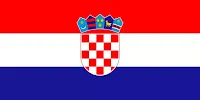
Overview
Payroll Cycle
Employer Contributions
Employee Contributions
Minimum Wage
Hiring
Hiring Employees
Hiring Contractors
Hiring Expats
Background Checks
Employment Contracts
Onboarding
Employee Benefits
Social Security
Healthcare and Insurance
Leave Policy
Public Holidays
Work Permit and Work Visa
Probation Period
Notice Period
Termination and Severance
Personal Income Tax
Employer of Record in Croatia manages a range of crucial aspects including payroll cycles, employer and employee contributions, minimum wage compliance, hiring processes for employees, contractors, and expats, background checks, employment contracts, onboarding procedures, employee benefits, social security, healthcare and insurance, leave policies, public holidays, work permits and visas, probation and notice periods, and termination and severance procedures, while also ensuring compliance with personal income tax regulations.
| Overview | |
| Continent | Europe |
| Country | Croatia |
| Capital | Zagreb |
| Time zone | UTC+01:00 (CET) |
| Total Time zones | 1 |
| Working hours per week | 40 |
| Working week | Monday–Friday |
| Typical hours worked | 8 |
| Personal Tax filing deadline | End of January or end of February, depending on taxpayer's circumstances. |
| Financial Year | NA |
| Date format | dd.mm.yyyy |
| Currency | Kuna (HRK) |
| VAT | the standard rate is 25% |
| Contributions |
Employer Payroll Contributions in Croatia
| Employers | |
| Health Insurance | 16.5% |
| Total Employment Cost | 16.5% |
Employee Payroll Contributions in Croatia
| Employees | |
| Pension | 20% |
| Total Employee Cost | 20% |
Minimum Wages in Croatia
| Minimum Wage | |
| Minimum Wage | The minimum wage in Croatia is 3120 HRK per month. |
Payroll Cycle in Croatia
| Payroll | |
| Payroll Cycle | Monthly |
| 13th Salary | Not mandated, however bonuses are common during the Christmas period. |
Personal Income Tax in Croatia
| Income Tax | |
| Up to 360,000 HRK | 20% |
| Over 360,000 HRK | 30% |
Employee Benefits in Croatia
Employee benefits in Croatia encompass various mandatory, supplementary, and voluntary provisions aimed at ensuring the well-being and protection of employees. These benefits can range from social security and healthcare to additional perks provided by employers. Here is an overview of the employee benefits landscape in Croatia:
Mandatory Employee Benefits:
- Pension Insurance: Croatia has a three-pillar pension system. The first pillar is a generational solidarity system, while the second pillar involves compulsory individual pension insurance. The Croatian Institute for Pension Insurance (HZMO) administers the pension system. Contributions are deducted from employees' salaries, and the system provides coverage for old age, disability, and death benefits.
- Health Insurance: Basic health insurance is compulsory for all citizens with permanent residence in Croatia. It is managed by the Croatian Institute for Health Insurance (HZZO) and covers general and urgent healthcare services, workplace-related injuries, maternity leave, and transportation costs for accessing healthcare services.
Supplementary Employee Benefits:
- Retirement: Voluntary pension insurance, known as the third pillar, allows individuals to make additional savings for retirement. Members of voluntary pension funds receive certain benefits and tax incentives. While employer contributions to the third pillar are optional and relatively uncommon, some companies provide this benefit to higher-ranking employees.
- Healthcare: Supplementary health insurance in Croatia can be either supplementary or additional. Supplementary health insurance covers part of the costs associated with basic health insurance, while additional health insurance offers broader coverage and additional services not covered by mandatory insurance. Private insurers provide these policies.
Voluntary Benefits:
In addition to mandatory and supplementary benefits, employees in Croatia can avail themselves of various voluntary benefits, including:
- Travel Health Insurance: Provides coverage for medical expenses incurred during travel and stays abroad.
- Personal Accident Insurance: Group personal accident insurance policies offer coverage for death and permanent disability resulting from accidents.
- Life Insurance: Employees can opt for life insurance policies that provide financial protection to beneficiaries in the event of the insured person's death. These policies may also offer coverage for severe illness and personal accidents.
Employee Perks:
Alongside formal benefits, employee perks are provided by companies in Croatia to enhance the overall employee experience. These can include:
- Company Cars: Senior managers often have access to company cars for both professional and personal use.
- Mobile Phones: Employers may provide mobile phones, with either partial or full expenses covered, to employees for business purposes.
- Performance-Related Bonuses: Bonuses tied to individual or company performance are common in the Croatian business environment.
- Professional Training: Companies may invest in the professional development of their employees by offering opportunities for training and education.
Other perks, such as occasional gifts during holidays and tax-free transportation allowances, are also prevalent in some organizations.
While the structure of compensation packages varies based on position and net salary, employee benefits and perks contribute to attracting and retaining talent in Croatia's competitive job market. It is essential for both employers and employees to understand and navigate the available benefits to ensure compliance and maximize the value of these provisions.
Balkan Peninsula: EOR Croatia | EOR Slovenia | EOR Bulgaria | EOR Romania
